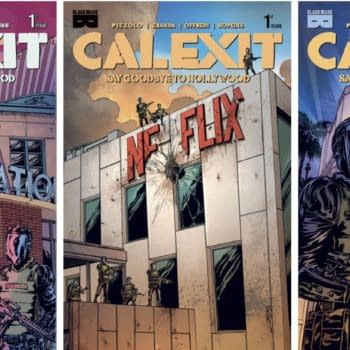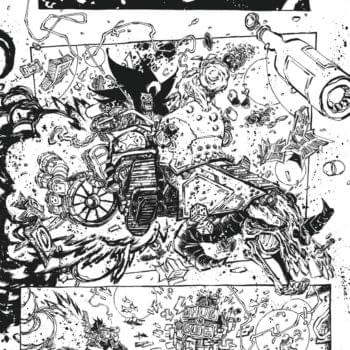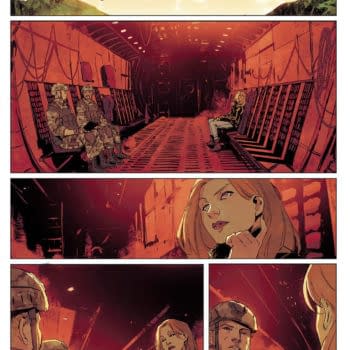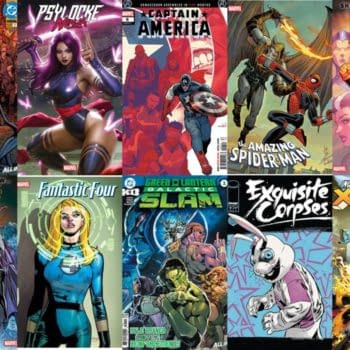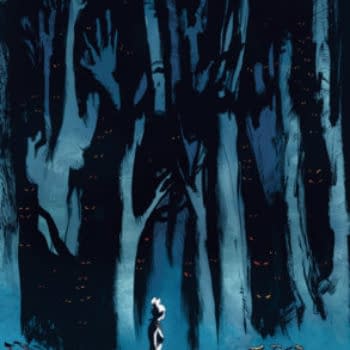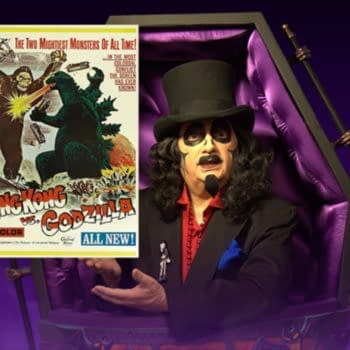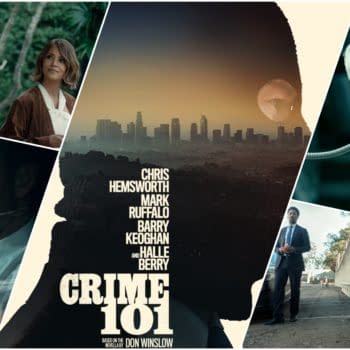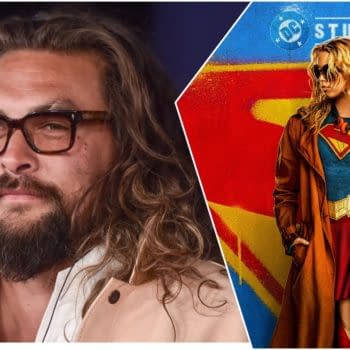Posted in: Movies | Tagged: Comics, documentary, entertainment, image expo, image revolution, jim lee, patrick meany, rob liefeld, robert kirman, spawn, the image revolution, todd mcfarlane, walking dead, wildcats, youngblood
Ahead Of Image Comics Expo – The Image Revolution
Today, the Image Expo is being held on the West Coast. Which means under the cover of darkness comic creators more commonly associated with DC and Marvel and being hurried on and off planes, ready to announce their new creator-owned comic book, from Image Comics.
Hint, look who has stopped tweeting for the last few hours.
But how did it come to this? Patrick Meaney has directed a new documentary movie to follow up on his Grant Morrison and Warren Ellis documentaries, and funded by Kickstarter.
The question is, with these kind of things, is how much of a puff piece is it? Because from the beginning, it's incredibly positive following the early careers of the Image founders, becoming superstars and setting up on their own. And while it does look at the problems of too-much-too-young, the fights between founders and criticism of the quality of work and professionalism at the beginning, it does miss out a few of the inconvenient truths, the involvement of Malibu Comics in those early days, the role in Image deciding to follow DC Comics and go exclusive with Diamond Comic Distributors and the resulting collapse of Capital City Distribution, the Name Witheld letter by Erik Larsen, or the battles with the likes of Peter David (the boxing ring debate would have made good cinema, surely).
But it does provide a richer experience of the conflicting histories of the company that the recent anniversary book from the publisher, especially the did-he-jump-was-he-pushed debate over Rob Liefeld's exit from the publisher, while simultaneously undermining the importance, excitement and drive of the publisher and the impact it has on the industry, and continues to have.
So we see the entreprenuerialism of Todd McFarlane, the professionalism and likeability or Jim Lee and the urgent kineticism of Rob Liefeld – and how very little has changed, seeing them as youngsters, to the late fortysomethings only adds wrinkles, the people are the same.
There are moments that will stay with you. Rob Liefeld looking wistfully at the sports cars his employees were all driving to work, and doing his spot-on impersonation of Todd McFarlane. The lounge lizard relaxed vibe of Jim Valentino. The bitterness between Marc Silvestri and Rob Liefeld, revived, just for seconds before being smoothed over as the film moved on. And all the modern day interviews cut and spliced with images of the past.
And the repeated assertion that if Marvel had sent Rob Liefeld and Todd McFarlane a couple of free T-shirts of their work, Image Comics would never have happened. How Image Comics broke Batman's back and killed off Superman by their very existence. And Larry MArder's description of running Image like managing a basketball team when all the A-list players were also owners of the club.
And there is lots of artwork on display. Some embarrassing, some inspiring, some that grab the teenager within you and give him or her a twist. There is, sadly, a motion-comics narrative device between some scenes that really conflicts with the rest of the film (though Tom DeFalco falling through the door listening in on a meeting at Marvel is an exception) but the Image art, combined with old news footage and the people now make for a feeling of comprehensivity. You come out really liking Image Comics if you didn't before. Which you probably did.
And much of that, especially towards the end, is the Walking Dead. The feeling that the story isn't just one of the nineties, but the future moving forward. That the same story being told in the past, is still told being now. And while they focus on the creative issues that led the founders to move to Image, they don't look at any creative issues current Image creators might have – so the Walking Dead lawsuit with Tony Moore, isn't mentioned.
So, yes, while there is still story to tell and narrative choices made that might not tell the whole story, this does tell an exciting story, with plenty of warts. For those of us who were a part of it or watched it happening, it's a narrative not jut of Image Comics, but of your reading experience as a comics buyer. For those who weren't there, it may seem odd that this haphazard organisation is the smoother Image Comics we know now, and you can see what a Fragile Creature the publisher was, and how it almost fell apart.
That is the film's strength, showing the brash and the bravado, skating on thin ice, and both the danger and the desire almost destroying what had been created – but not quite. And now, how the reward is deserved, well won, and finally stable.
Ish.
And clearly the filming process kept Eric Stephenson at the camera for longer than he expected…
Word of warning, I do make a small appearance, filmed at San Diego Comic Con, and I'm onscreen for about fifteen seconds, tops. Which oddly is about the same amount of screentime as Dave Olbrich of Malibu Comics.
Here's a trailer to whet your appetite.
[youtube]http://www.youtube.com/watch?v=yM3-9JmLqso[/youtube]
The Image Revolution is directed by Patrick Meaney; director of photography, Jordan Rennert; produced by Jordan Rennert and Patrick Meaney; executive producers, Julian Darius and Mike Phillips; in association with Respect! Films



















